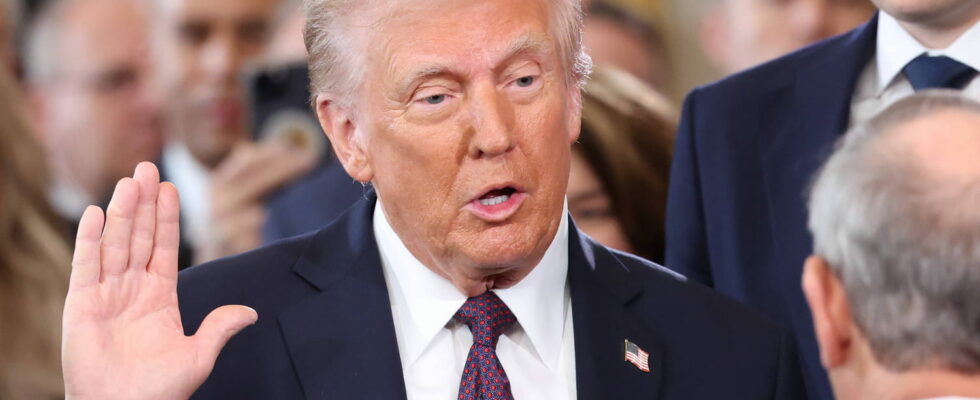Just after his inauguration, Donald Trump signed several decrees, including one concerning a right guaranteed by the American Constitution.
Donald Trump officially became the 47th president of the United States on Monday, January 20. Upon his return, the Republican multiplied the shock announcements and signed more than a hundred presidential decrees. The new tenant of the White House notably withdrew the United States from the Paris climate agreement, declared a state of energy emergency and even pardoned the vast majority of the Capitol rioters. The president has also made the fight against illegal immigration one of his priorities. He thus declared a national emergency on the southern border of the United States with Mexico, allowing him to send reinforcements from the American army and to resume construction of the wall.
Donald Trump also said he wanted the elimination of automatic child support for children born in the United States to parents who arrived illegally. In an interview in December, he announced that he would try to end this right on his first day in the White House. “You know that if someone sets foot, just one foot… on our territory: ‘Congratulations, you are now a citizen of the United States of America. We are going to put an end to it because it is ridiculous”, he then declared to NBC News.
Land law, which grants American citizenship to anyone born on American soil, is written in black and white in the Constitution. “Citizenship by birth” is a right guaranteed by this founding text. Donald Trump’s decision thus goes against the 14th Amendment. Although he did not place the Bible on his hand, the president has nevertheless just taken an oath to defend this same Constitution. “Every person born or naturalized in the United States, and subject to the jurisdiction thereof, is a citizen of the United States and of the State in which he resides”, we can read from the first article of this amendment. “No State shall not make or enforce any law which shall abridge the privileges or immunities of citizens of the United States, deprive any person of life, liberty, or property without due process of law, or deny to any person within its jurisdiction jurisdiction, equal protection of the laws”, it is then specified.
A revision of the Constitution?
The American president will have difficulty twisting the texts. However, it is entirely possible to revise the Constitution, as described in article 5 of the latter. Two procedures are necessary, but they are particularly complex. Amending the Constitution can only be done with the agreement of a majority in both houses of Congress and with the ratification of at least thirty-eight states out of fifty. Donald Trump, however, did not specify how he intended to implement his decision.
The leader is also exposed to legal challenges. According to legal experts, this “radical decision goes against more than a century of legal precedent” and is “unlikely to be found to be constitutional,” reports The Washington Post. All the American jurists who have spoken on the subject are in any case clear: a simple decree is not enough to modify such an essential principle. This coup is at least a blow to the founding text of American law.
